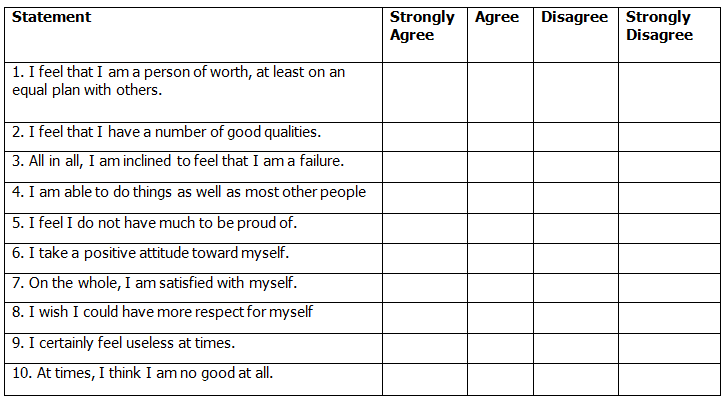Test and build your self-confidence

Some individuals have lots of confidence in one area of their lives yet not in others. Some individuals may appear confident when in reality they do not feel confident. So, let us explore your own confidence in all areas of your life to help you strengthen it.
Before we start, it is important to point out that individuals who are confident still have doubts, fears and insecurities about what they are about to do, yet they carry on. They do not berate themselves for poor performance nor do they compare themselves with others. They simply focus on themselves and what they can do to be at their best.
Bearing in mind that even confident people have fears and insecurities, let us analyse your current levels of confidence.
Self-assessment test to determine your confidence level
With measuring confidence levels, your rating will be subjective. It is your interpretation and your sense of whether you feel confident or not in regards to different areas of your life. Yet saying that, there is a self-esteem scale, developed by Rosenberg (1965), and that is still widely used today. A sense of self is tied closely to a sense of confidence. The Rosenberg scale is based on questions that you answer with “strongly agree”, “agree”, “disagree” or “strongly disagree”. You then give each rating a score and the total score gives you an overall indication of level of self-esteem.
For each statement below, tick the box to indicate whether you strongly agree, agree, disagree or strongly disagree.
To calculate the scores, for items 1, 2, 4, 6 and 7, give points based on:
- Strongly agree = 3
- Agree = 2
- Disagree = 1
- Strongly disagree = 0
To calculate the score for items 3, 5, 8, 9, and 10, give the following points:
- Strongly agree = 0
- Agree = 1
- Disagree = 2
- Strongly disagree = 3
Now, total up your score for all 10 questions.
Scores between 15 and 25 are considered within the normal self-esteem range whereas score below 15 suggest low self-esteem.
Whenever you do any self-assessment like this one, it is important to recognise that it reflects how you are feeling and what your mindset is at that point in time. If you were to complete the self-assessment another day, you might score things somewhat differently depending on how you feel on the day, what is going on with you and what is going on in your life.
Another way to “measure” your confidence levels is to look at different areas of your life and give a subjective rating, say on a scale of 1 to 10, as to how confident you feel.
Exploring Different Areas in Your Life
The subjective evaluation of your confidence levels will be unique to you. It is you measuring how confident you feel within yourself, and this does not compare to others. To start this evaluation, take a moment to list all the different roles and responsibilities you have in all areas of your life. This might include such things as:
- Family roles such as mother / father, sister / brother, daughter / son, aunt / uncle
- Work-related roles such as employee reporting to someone higher up. For example, boss / manager / team leader looking after and supervising others, colleague and peer, business contact or connection; and particular tasks such as writing a report
- Outside roles including member as a student, sports club, hobbies for which you participate in a group, local community groups or church
Once you have listed all the different roles and tasks, give a rating as to your sense of confidence levels on a scale of 1 to 10, with 1 being low and 10 being high levels of confidence.
After you have rated each area of your life, what sort of picture does that paint? Which, if any, areas would you like to focus on to further develop your confidence levels? Remember, not everyone has high levels of confidence in all areas of their lives. The difference is whether it actually stops them from doing what they want to do or not.
The reasons why some individuals experience low levels of self-confidence might be due to several factors. It could be due to excessive criticism from a trusted parent, teacher or even boss. Sometimes the messages you heard as a child impact on how confident you feel today.
Yet, as an adult, you can choose to become more aware of what has happened in the past and the negative messages you may have heard and to see and understand these messages for what they are, other people’s issues. Positively reframing these messages will help you feel better about yourself and more confident within yourself.





